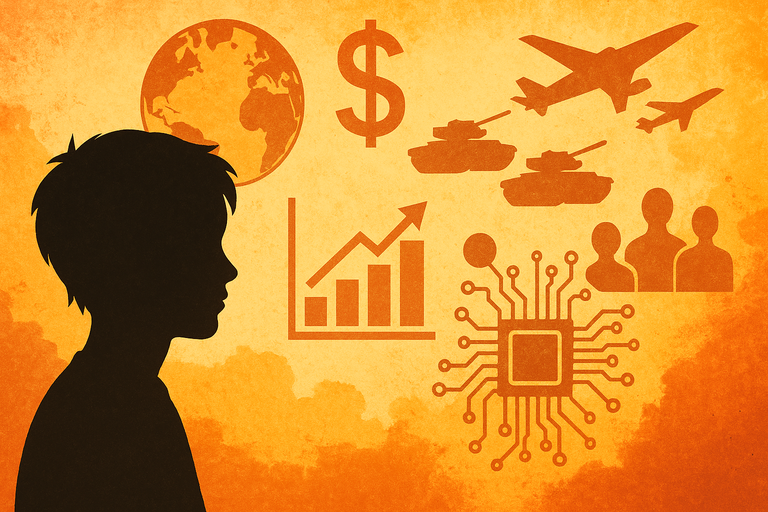Through the Eyes of a Young Mind: Reflections on Our Times

In a world that feels more connected yet more fragmented than ever, I ask what it truly means to live in these times. The first thing I noticed was how much we all look and live alike nowadays. Maybe the last time humanity was this similar was when we first started to leave Africa and spread around the world. In the last 30 years, as the internet reached even the most distant corners of the world, cultural borders began to fade. Music, TV shows, fashion, ways of thinking… everything started to blend into one global stream. I was born just two years before the end of the 20th century, a century that, to me, was one of the most intense and important in human history. Two world wars, a global pandemic, a deep economic crisis, countless coups and civil wars… and most of it happened in Europe. Europe went through some of its hardest decades since the Middle Ages. But after World War II, especially once the Cuban Missile Crisis passed, the continent entered a long period of peace and growth. Of course, the Cold War was still there. People still talked about the “communist threat.” But even then, European countries enjoyed the benefits of new technologies and political stability. Meanwhile, the rest of the world was dealing with other big events: the tension between the US and the Soviet Union, the Vietnam War, conflicts in the Middle East, the rise of Mao’s China, and the space race. So, while humanity was moving forward in some ways, it was also constantly struggling with itself.
When I look at today’s world, stepping out of the shadow of the past, yes we may look more alike than ever, but deep inside, we seem to be growing further apart.
The world today is both fast and fragile at the same time.
On one side, we’re facing major global issues like artificial intelligence, climate change, wars, and economic instability. On the other side, a simple photo of a hungry child can still make our hearts ache. Europe is no longer the center of the world. Today, modernisation, economy, and critical decisions are shaped by other global powers. And somehow, it feels like Europe just follows as if others are holding the pen, and Europe simply signs the papers. It stays quiet in the face of wars that clearly harm most people and benefit only a few. It doesn’t want to speak too much about the US-China trade tension. It struggles to keep up with new technologies, and it doesn’t really create anything new. Don’t get me wrong, I’m not against regulation. In fact, I believe regulations are important and necessary. But it still feels strange that the same continent that once led science, philosophy, and progress now seems to have lost that role in just 60 or 70 years. And honestly, the rest of the world isn’t doing much better. The global balance that took years to build is slowly disappearing. Maybe the memory of humanity only stays fresh for a few generations. It seems like we’ve already forgotten the hard times we went through. Today, I see different desires in the eyes of some world leaders — a hunger for power, for more control. And that could easily pull us back to one of the darkest periods in modern history a world like the 1940s. At a time when we should be focused on AI, climate action, and social justice, we’re instead at risk of losing another few decades to populist leaders and short-term thinking. We haven’t lived through the same darkness as the youth of the 1940s, not yet. But we’ve seen enough: a pandemic, wars, economic crises, and growing divisions.
Maybe this is exactly where we are: standing at the edge of a threshold. Either we cross it and a new era begins or we spend a few more decades circling the same old questions.